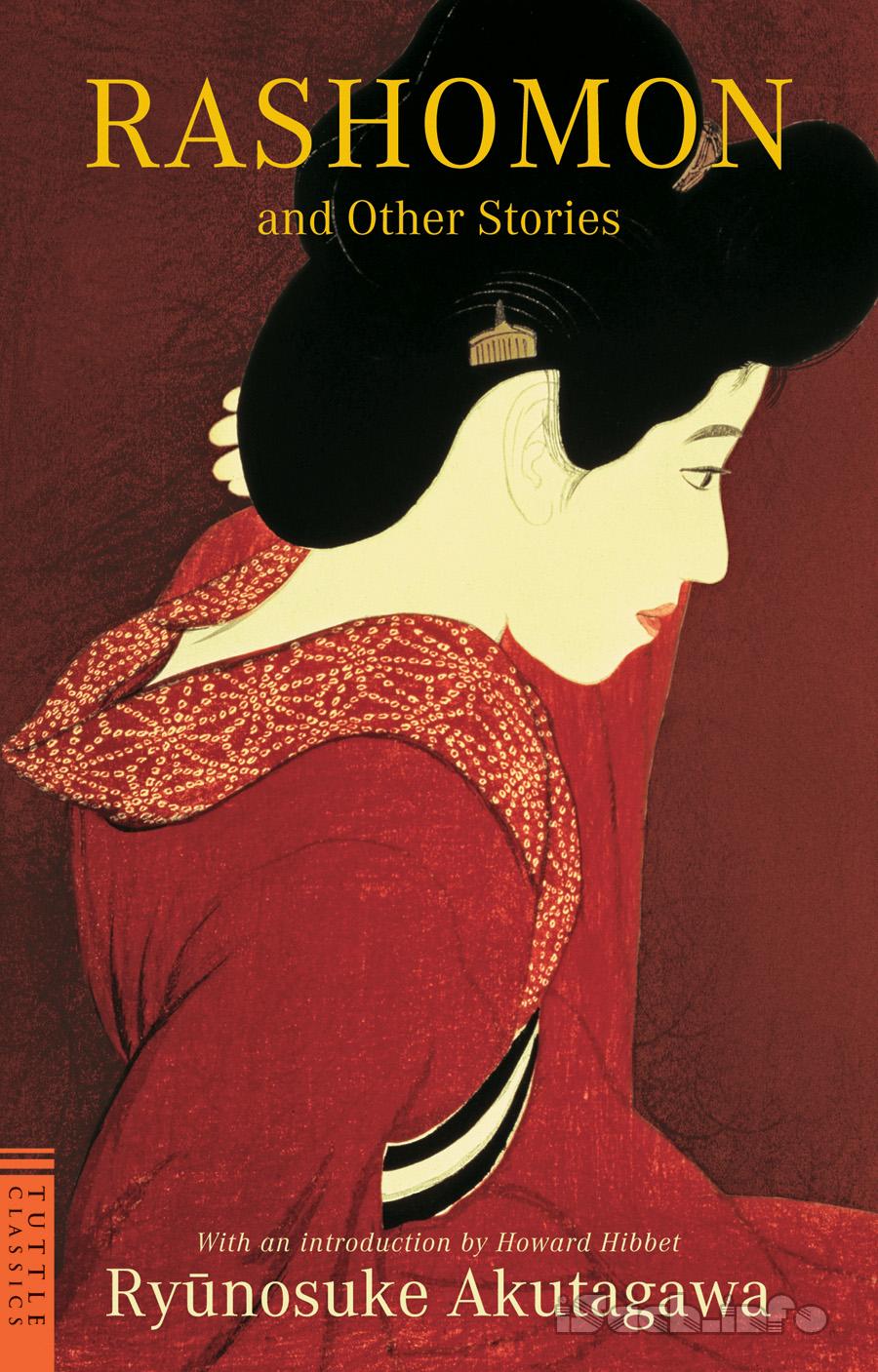Introduction
T
O SKETCH THE background and temperament of Akutagawa Ryu-nosuke is to risk a melancholy cliché. He was brilliant, sensitive, cynical, neurotic; he lived in Tokyo, went to the University, taught briefly, and joined the literary staff of a newspaper. Even his early suicide (in 1927, at thirty-five) only heightens the portrait of a modern Japanese intellectual, the double victim of an unsympathetic society and a split culture. But it is a vague composite portrait. For Akutagawa himself, aloof, elusive, individual, remains withdrawn behind the polished façade of his collected works. All that needs to be known about their author, besides the name stamped on the binding, may be found within these poems, essays, miscellaneous writings, and more than a hundred beautifully finished stories.The stories have a dazzling and perhaps deceptive sheen. Superficial critics called Akutagawa precious, or decadent, or dismissed him as a fatiguingly clever dilettante. Unprepared for the strength of his later satires, they supposed him to care only for the superb texture of his prose. Translation protects us from the seductions of this style, yet encourages a similar error, since the nuances of Akutagawa's prose are what conveys the essence of his thought. Like Natsume So-seki and Hori O¯gai, whom he admired, Akutagawa used his language delicately, precisely, and with a richness enhanced by a knowledge of several literatures. It is significant that his first published writings were translations of Yeats and Anatole France. He remarked once that words must yield more than the bare dictionary meanings; he had a poet's feeling for their shapes and flavors, as well as their ambiguities, and he combined them with such freshness and economy that his phrasing never lacks distinction. Like Picasso, Akutagawa often varied his style, but always, whatever the particular blend of vernacular and mandarin, he controlled it with scrupulous precision. A master of tone, he gave his stories a cool classic surface, colored but never marred by the wit and warmth underlying that perfect glaze. The composure of his style is undisturbed even by vivid accents of the sordid or the bizarre.
Detachment was a key strategy to Akutagawa. As a narrator, he liked to be unseen, impersonal; he cultivated the oblique glance. When he did enter his stories, it was usually in the slight role of the observer or the suave self-effacing compiler. Old tales and legends, historical settings of the remote Heian Period or the feudal ages which followed —these he used not to turn his elaborate erudition to account, but to enrich and extend the implications of his themes, and to maintain aesthetic distance. The early era of Christian conversion in Japan, in the sixteenth century, was a favorite of his; in Ho¯kyo¯nin no shi ( The Martyr) he exploited it to the point of hoax by supporting an archaic style with a source reference which, after an interval for learned controversy, he acknowledged to be fictitious. It suited his ironic taste to play the illusionist who leaves his audience staring blankly into a mirror.
But Akutagawa did more than deceive scholars and baffle the unwary: he antagonized ruling critical opinion. His attention to style, his preference for techniques of indirection and restraint, his indifference to current dogma — such attitudes were heresy to both the leading literary schools. The Proletarian writers, flourishing in the '20's, found nothing in common between Akutagawa's subtle stories and their own carefully chosen but grossly cut slices-of-life. The Naturalists, their rivals, had moved toward romantic individualism, forgetting Zola's concept of social inquiry. Dominant since the Russo-Japanese War, they sanctioned only the literary method to which, in the name of the first-person-singular shisho¯setsu, their successors still adhere. This was the Confession, ranging from the sentimental memoir to the clinical report of an author's sexual life. Despite the exhaustion of the autobiographical form of fiction after Proust, these novelists went on eagerly probing their wounds and laying themselves open to reproach; while Akutagawa, unmoved by the exhibition of so many tedious egos, went his own way. A few of his stories suggest maliciously that confession itself may be false. Yabu no naka (In a Grove), for example, converts an old melodramatic tale into a series of conflicting statements which undermine our prosaic confidence in distinguishing between subjective and objective, truth and fiction. Even the dark testaments which he left before suicide contain flashes of mockery to perplex the straightforward reader.
There are enough Swiftian touches in Akutagawa to show his hatred of stupidity, greed, hypocrisy, and the rising jingoism of the day. But Akutagawa's artistic integrity kept him from joining his contemporaries in easy social criticism or naive introspection. If, too often, his finely enameled miniatures seem cold, over-subtilized, worn thin by an obsessive critical sense, still they are never merely decorative. What he did was to question the values of his society, dramatize the complexities of human psychology, and study, with a Zen taste for paradox, the precarious balance of illusion and reality. He developed a variety of techniques — from realism to fantasy, symbolism to surrealism — and used all of them in the search for poetic truth. Akutagawa was both intellectual and artist, and it was the quality of his artistry that enabled him to explore these difficult problems as deeply as he did, and to give his perceptions such exquisite and durable form.
HOWARD HIBBETT
Tokyo, Japan



 ePub
ePub A4
A4